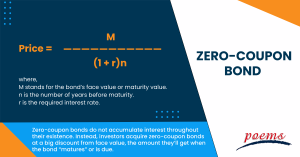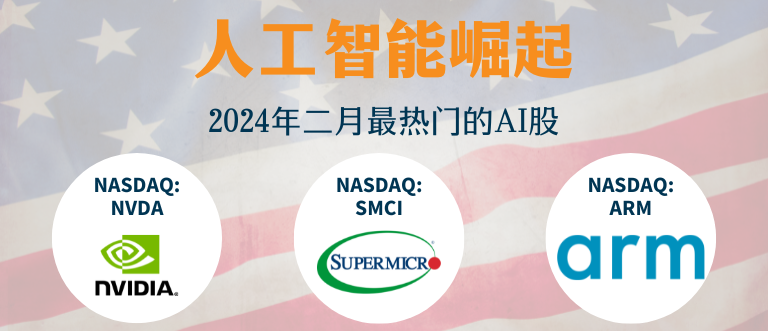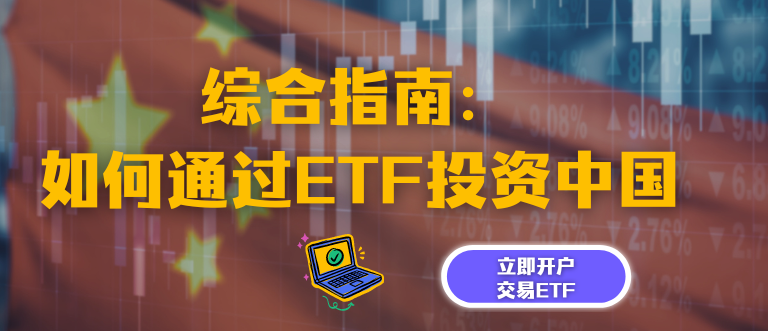Zero-coupon bond
Table of Contents
Zero-coupon bond
Bonds with zero coupons are fixed-income investments that bear no interest. Investors receive their face value or par value at maturity. These bonds have a maturity of 10 to 15 years. As a result, they are heavily discounted. The cost of bonds changes as they near maturity.
The investor will be willing to pay less the closer the date of maturity gets. These bonds are best suited for long-term financial objectives like retirement. But investors can sell these bonds before they mature since they are traded on the stock market.
What is a zero-coupon bond?
Zero-coupon bonds do not accumulate interest throughout their existence. Instead, investors acquire zero-coupon bonds at a big discount from face value, the amount they’ll get when the bond “matures” or is due.
Zero-coupon bonds typically have long maturity dates; many are delayed by 10, 15 or more years. These lengthy maturity dates enable an investor to prepare for a distant objective. An investor can use the substantial discount to invest a small sum of money that will rise over many years.
In the secondary markets, investors can buy several zero-coupon bond types that a range of issuers have issued.

Understanding zero-coupon bonds
A zero-coupon bond trades at a discount to its face value because it doesn’t issue regular coupons.
Money is worth more now than it will be at some point in the future, according to the idea of the time value of money. For example, an investor would rather get $100 today than $100 in a year. The investor can receive interest on $100 by depositing it into a savings account today.
Extending the previous concept to zero-coupon bonds, a bond buyer today must receive compensation in the form of a greater future value. A zero-coupon bond must be traded at a discount since the issuer must give the investor a return on their investment.
Pricing a zero-coupon bond
The price of a zero-coupon bond can be calculated as follows:
Price = M ÷ (1 + r)n
where,
M stands for the bond’s face value or maturity value.
n is the number of years before maturity.
r is the required interest rate.
The bond price decreases as the remaining time to maturity increases, and vice versa. Zero-coupon bonds often have long maturity dates, with initial maturities of at least ten years. Investors can plan for long-term objectives using these long-term maturity dates, such as saving for a child’s college education. An investor can make a tiny initial investment that will rise over time thanks to the bond’s substantial discount.
Importance of zero-coupon bonds
Many investors find zero-coupon bond funds unattractive since they do not provide a consistent yield. Others believe it is appropriate for achieving long-term investing goals. It enables long-term risk-free interest to be earned by investors.
If purchased at a time when interest rates are high, zero-coupon bonds can be quite advantageous. Buying municipal zero-coupons, which are tax-free, can be a terrific method to save money on taxes. This only applies to investors residing in the state where the bond was issued.
Zero-coupon bonds have both advantages and disadvantages. The effects of the characteristics, however, may vary depending on the investor. This bond is appropriate for investors with long-term goals, but investors with short-term goals could disagree. Therefore, investors should choose whether to purchase zero-coupon bonds depending on their investing goals.
Advantages of zero-coupon bonds
The following are some benefits of a zero coupon bond:
- Investors cannot receive bond cash flow at the same pace as the investment’s necessary rate of return with other coupon bonds. But the reinvestment risk is eliminated by zero-coupon bonds. Because zero-coupon bonds do not permit periodic coupon payments, a stable interest rate is guaranteed.
- For people who want a long-term investment and a large sum of money, the zero- coupon bond is the best option. The guarantee of a guaranteed return, provided the investment is held until maturity, is the driving force behind this.
- Long-term investors benefit greatly from the zero-coupon bond’s extended time horizon. A fixed amount can be obtained through long-term investment without being concerned about market volatility.
Frequently Asked Questions
A regular bond differs from a zero-coupon bond by paying interest, which is also known as a coupon. In contrast to conventional bonds, which do, zero-coupon bonds do not pay interest to bondholders. Zero-coupon bond investors receive the bond’s face value when it matures. Regular bonds commonly referred to as coupon bonds, accrue interest for the bond’s existence before returning the principal.
The price of a zero-coupon bond is determined by its face value, or par value, and the interest rate, or coupon rate that the bond pays. The face value implies the amount of money the bond will be worth when it matures. The coupon rate is the interest the bond pays each year.
To calculate the price of a zero-coupon bond, the investor must first determine the face value of the bond. The investor must then determine the coupon or interest rate the bond pays each year. Finally, the investor must calculate the present value of the bond, which is the value of the bond today.
Bond sales resulting in short-term capital gains are subject to taxation at the applicable slab rate, ranging from 5% to 30% plus surcharge and cess. If zero-coupon bonds result in long-term gain, the investor will be required to pay capital gains tax when the bonds mature.
People who want to invest long-term and receive their return in one lump amount are the best candidates for zero-coupon bonds. People should choose zero-coupon funds if they need the money at a precise moment or are investing for any future occasion, such as a child’s education or a business.
The equation for determining a bond’s present value with no coupons is shown below:
Price = M / (1 + r)n,
where M is the maturity date. n = Years Until Maturity, and r = Interest Rate.
Related Terms
- Notional amount
- Negative convexity
- Jumbo pools
- Inverse floater
- Forward Swap
- Underwriting risk
- Reinvestment risk
- Final Maturity Date
- Bullet Bonds
- Constant prepayment rate
- Covenants
- Companion tranche
- Savings bond calculator
- Variable-Interest Bonds
- Warrant Bonds
- Notional amount
- Negative convexity
- Jumbo pools
- Inverse floater
- Forward Swap
- Underwriting risk
- Reinvestment risk
- Final Maturity Date
- Bullet Bonds
- Constant prepayment rate
- Covenants
- Companion tranche
- Savings bond calculator
- Variable-Interest Bonds
- Warrant Bonds
- Eurobonds
- Emerging Market Bonds
- Serial bonds
- Equivalent Taxable Yield
- Equivalent Bond Yield
- Performance bond
- Death-Backed Bonds
- Joint bond
- Obligation bond
- Bond year
- Overhanging bonds
- Bond swap
- Concession bonds
- Adjustable-rate mortgage
- Bondholder
- Yen bond
- Liberty bonds
- Premium bond
- Gold bond
- Reset bonds
- Refunded bond
- Additional bonds test
- Corporate bonds
- Coupon payments
- Authority bond
- Clean price
- Secured bonds
- Revenue bonds
- Perpetual bonds
- Municipal bonds
- Quote-Driven Market
- Debenture
- Fixed-rate bond
- Convexity
- Compounding
- Parallel bonds
- Junk bonds
- Green bonds
- Average maturity
- Investment grade bonds
- Convertible Bonds
Most Popular Terms
Other Terms
- Deficit interest
- Strong order book
- Economic calendar
- EPS forecast
- Fiat money
- Options expiry
- Adjusted distributed income
- International securities exchanges
- Settlement currency
- Federal funds rate
- Active Tranche
- Convertible Securities
- Synthetic ETF
- Physical ETF
- Initial Public Offering
- Buyback
- Secondary Sharing
- Bookrunner
- Payment Date
- Secondary Market
- Margin Requirement
- Mark-to-market
- Pledged Asset
- Yield Pickup
- Subordinated Debt
- Trailing Stops
- Treasury Stock Method
- Stochastic Oscillator
- Basket Trade
- Contrarian Strategy
- Exchange Control
- Notional Value
- Relevant Cost
- Dow Theory
- Speculation
- Stub
- Trading Volume
- Going Long
- Pink sheet stocks
- Rand cost averaging
- Sustainable investment
- Stop-limit sell order
- Economic Bubble
- Ask Price
- Stock symbol
- Synthetic replication
- Bourse
- Beneficiary
- Witching Hour
- Widow and Orphan stock
Know More about
Tools/Educational Resources
Markets Offered by POEMS
Read the Latest Market Journal

指数差价合约是区别于投资个股、指数期货或交易所交易基金(ETF)的一种热门替代品,因为该工具允许您获得特定指数的风险投资组合,并从柜台价格走势中获益,无论做多或做空。此外,由于差价合约的杠杆特性,交易者只需拿出合约价值的一小部分作为初始合约的抵押品即可启动一笔合约。这样,交易者就可以方便快捷地进行整个市场的交易。 本期重点摘要: 股票指数只是一组资产的集合,它概括了股市中某一行业板块的表现。许多此类指数根据不同的标准包含和/或排除某些股票。 指数差价合约有助于利用构成单一指数的各种股票分散您的投资组合、实现投资组合多样化。这也有助于避免 “选择悖论”:指数帮助您决定投资哪些股票。 最重要的是,指数差价合约让交易者获得对指数的接触,而不用购买组成指数的个股。这种具有成本效益的策略让您只需交易指数的价格变化,而无需拥有相关指数本身。 什么是股票指数? 当人们说 “今天市场上涨了 “或 “市场下跌了 “时,你会不会好奇,分析师是如何评估整个市场? 这很简单,他们只需分别将按照今天的报价和昨天的报价购买所有公司所需的金额相加。两相比较下,如果发现今天的数字大于前一天的数字,那么我们就知道今天的市场上涨了,反之亦然。然而,数字的汇总和对比可能会很繁琐和麻烦。创建指数就是为了方便测量。 因此,”股票指数 “一词指的是一组股票(或其他资产)的集合,它提供了股票市场特定部分表现的概况。该指数被用作一个替代指标,用来衡量市场在特定时间段内的涨跌情况,比如以上例子中所描述的逐日指数。...

本文旨在为中级外汇交易者提供必要的信息和知识。它将涵盖我们上一篇文章 “五分钟看懂世界上最活跃的市场-外汇差价合约(FX CFD)...

解锁台湾股市的投资潜力!深入了解由强大的技术驱动型经济推动的股票市场,2023 年机械和电气设备将占出口的 69%。在政治稳定、投资者友好的法规和健全的法律框架下,探索台积电和富士康等全球顶级企业。台湾股市值得称赞的历史表现和在国际贸易中的的重要性使其更具吸引力。在这个科技实力雄厚、经济稳定、充满活力的股票市场中,抓住增长机遇!

了解外汇市场 外汇交易市场又称外汇市场,是一个买卖货币的全球性金融市场。它是全世界规模最大、流动性最强的金融市场,每日交易量超过 6 万亿美元。但外汇市场有一个重要却常被忽视的一点,就是它受交易心理的影响。在本文中,我们将探讨外汇市场的复杂性,还有把重点放在交易心理与传统交易策略共同发挥的关键作用...

五分钟看懂世界上最活跃的市场 -外汇差价合约(FX CFD)
外汇交易市场俗称外汇或外汇市场,是全球金融市场的支柱。它是世界上最活跃的市场,2022 年 4 月,全球交易额达到创纪录的每天 7.5 万亿美元[1] 。这个活跃的市场为交易者提供了利用货币价格波动赚取利润的机会。在本文中,我们将解释外汇市场的基本原理,助您了解其投资机制。 什么是外汇? 外汇市场是一个分散的全球市场,世界上所有货币都在这里进行交易...

随着通胀数据趋向 2% 的理想目标,人们普遍乐观地认为,在任何可能的降息之前,市场都不会受到不利影响。以下是美股市场2024年的一些重要事件,投资者在做出投资决策时可以参考留意。






















